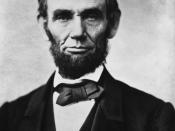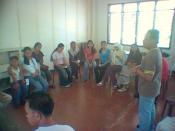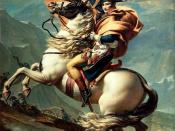TRAIT AND SITUATIONAL LEADERSHIP APPROACHES 1
An examination of Trait and Situational Leadership Approaches
Dana L. Zanders
University of Maryland University College
Turnitin Originality Score_________ Abstract
This paper will compare and contrast trait and situational approach leadership theories, the development of the theories and how effective each are in organizations. This paper will compare each approach, some of their research history and the challenges they faced in the past and the challenges they may or may not face in the future. The trait approach is the oldest theory that have been researched by numerous researchers. The situational approach consist of two elements that focus on leadership style and the development of subordinates. The strengths and weakness of each approach will also be compared and constrast.
An examination of Trait and Situational Leadership Approaches
There are over 200 definitions for leadership that have used since the 1900's. The ability to impress the will of the leader, acts by persons which influence other persons in a shared direction, and do as the leader wishes are a few definitions that were used during the 1900's (Northouse, 2013).
Today, leadership is defined as a process that involves individuals or groups to reach a common goal (Northouse, 2013,). It's motivating and persuading people to obtain a desired result through communication and influence. Leadership is also defined as a process that happens between a leader and a follower (Northouse, 2013).
During the 20th century, researchers belived that there were natural born leaders who were born with the "trait" to lead. They believed these individuals had certain qualities and characteristics such as unique physical appearance, personality features, emotional, and cognitive traits that distinguished them from nonleaders. Leaders such as Catherine the Great, Mohandas Gandhi, Indira Gandhi, Abraham Lincoln, Joan of Arc, and Napoleon Bonaparte were studied by...


